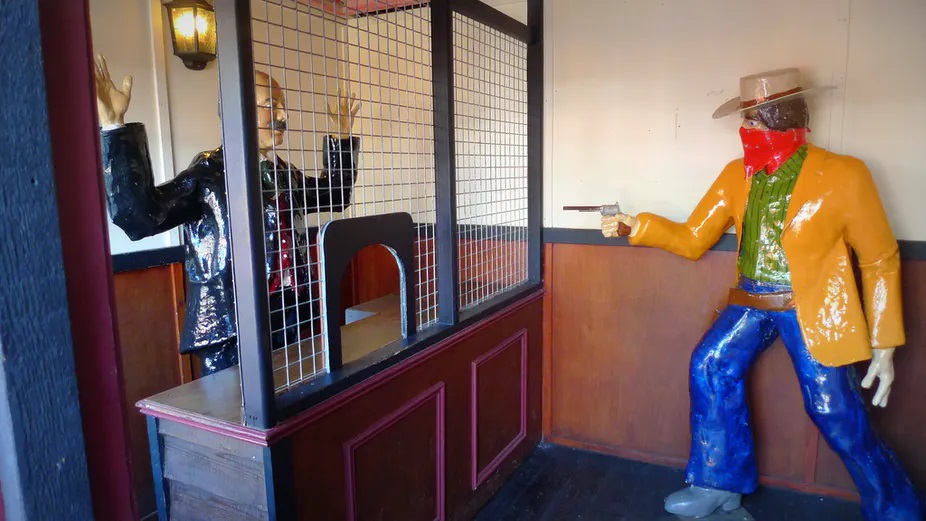The timeline for this 2.556 billion pounds transaction goes as follows:
7th June 1994 – Cheque deposited, Barclays Bank Cheque Number 01040 deposited into Kukoyi’s account with Union Bank.
- PODCAST: The Supplementary Budget: Who Benefits Most?
- Hushpuppi: US Court lists DCP Kyari among wanted suspects
29th June 1994 – Union Bank writes to Petrol Union that “CBN has instructed to proceed and forward application for the approval of said amount”. This is interpreted by Petro Union to mean that the cheque had been cleared and that Petrol Union was now free to start withdrawing in order to build their refineries.
Sometime in early 2005 – Petro Union petitions Union Bank at EFCC asking that they should have access to their 2.5 billion pounds sterling which they believe had cleared since 11 years! It is unclear what happened in the 11 years in between and how many times the client wrote to Union Bank or what Union Bank response was in that interregnum.
10th May 2005 – EFCC writes Union Bank Plc, stating that the cheque was deposited at UBN Broad Street branch in 1994 and if unpaid should be returned.
2012 – Petrol Union sues Union Bank and Central Bank of Nigeria, asking to be allowed access to the 2.556 billion pounds.
12th March, 2014 – High Court Justice Kafarati awarded case against Union Bank – and CBN. He asked that funds be returned to Petro Union with 15% interest compounded since 1994. Union Bank appeals the judgment.
6th June, 2018 – Appeal court upheld High Court decision. Said Union Bank appeal lacked merit. Basically threw out the case.
16th December, 2019 – Supreme Court also struck out Union Bank Plc’s appeal and affirmed the initial judgment. By now Union Bank and CBN, and indeed the whole of Nigeria, are owing Petro Union 15 billion pounds sterling
17th Jan 2020 – UBN invited management and directors to a meeting and got them arrested by EFCC.
The case is still on. The drama is still on, as the directors of the company are shuttling between EFCC and the courts. The progenitor, Prince Isaac Okpala is now dead, but his adult children are on the case and need their money urgently.
What could have happened
In 1994 I was a clearing officer at Citizens Bank Ltd – now defunct or somehow submerged into Heritage Bank. I had finished my National Youth Service at the University of Calabar as an Admin Officer in 1992 and hustled back to Lagos in search of a good job in the financial sector. I was lucky to get one at Citizens Bank where I knew nobody. I was assigned to the Clearing Unit where I would eventually take over as the ‘clearing guru’. Apologies to my ogas back in the day but I sort of mastered the manual process back then, very much unlike today when everything is digitized. The clearing officer basically collates all 3rd party cheques drawn on a bank in a certain jurisdiction, as well as cheques deposited by customers of the bank and takes them to a ‘clearing house’ then located at the Central Bank, where they would be routinely exchanged. A good clearing day is a day when the value of cheques you took to clearing was more than what you brought back.
Consistent net negative clearing balances meant the bank was haemorrhaging customers and liquidity. And then there were all sorts of frauds. Forged cheques will be deposited and if a bank is not careful, it will give value and allow a fraudulent person withdraw all the funds.
There was cheque kiting, meaning that some people specialized in writing cheques on accounts that had no funds in the hope that they somehow get value and walk away. Some put pressure on bank management to grant them early value on spurious cheques and if they are lucky, the bank is cooked. Then there was cheque suppression. This is a scenario where someone deposits a cheque in their account that should be presented on another bank but never gets to the bank.
On the other side, there are no funds and if the cheque actually gets presented through clearing, the other bank will simply bounce same. The trick is never to allow the cheque get presented to the paying bank. As a young clearing officer, I was approached severally by the teaming population of bank fraudsters in Lagos, to switch cheques. The scared look on my pimply face probably never encouraged them to push further. It was however normal to hear that one of your colleagues in the clearing house was busted over the weekend because he had acceded to some fraud syndicate.
Some got away with the fraud. Most were impressionable young men and women who will capitulate if they didn’t have serious home training and internal resolve. Or good luck. It was the days of 80 commercial banks, in various states of disrepair. It was the days of finance houses who ran ponzi schemes. It took 5 full working days for a local cheque (drawn in Lagos and paid into a Lagos account, to clear. For ‘upcountry’ cheques it took a whole 30 working days, later 20 working days. This means if your friend gave you a cheque drawn on his account in Ibadan, and you pay into your Lagos account today, just come back in like 45 days time. Life was slow. Life was sweet and blissful. All these digital kids of nowadays will rue their fates for not having lived in our time.
What is being hung around the neck of Union Bank Plc today is that the cheque was never returned to Petrol Union. Where is the cheque? Petrol Union says Union Bank received value for the cheque but never allowed them to make withdrawals and build three shiny new refineries for Nigeria. Union Bank on its part cannot find the cheque. Upon being contacted, Barclays Bank said the Gazeaft UK Limited account upon which the cheque was drawn, was closed five years before the cheque was ever written (in 1989). Clearing a foreign cheque by the way, was a different kettle of fish from the ‘local and upcountry’ I described above. To clear a Barclays cheque into a Union Bank Nigeria account, you had to receive the cheque and probably dispatch same to your correspondent bank in London – usually Bankers’ Trust or Citibank. They will then present in their local clearing and hope to get value. You will then keep calling them to know if the cheque had properly cleared. They will confirm through telex! That could take 2 or 3 months!
So, the questions that unravel this case and makes me think – using my forensic mind (and I am indeed a qualified forensic auditor under the auspices of ICAN) – that this is an attempted bank heist and may well be the largest ever in the history of human beings and in the history of heists, especially if it comes through, is that:
- Did a foreign cheque clear under a month in 1994? Could we say the period between 7th June 1994 and 29th June 1994 (17 working days) was enough to clear a foreign cheque in 1994?
- What was the rationale for transferring such a humongous amount into the account of a relatively unknown accountant in order to show ‘transparency’? Most people I know will rather have the money within their control. What if the accountant died? I’m not sure anyone will transfer a tenth of such funds to Accenture or PwC just for keeps.
More next week

 Join Daily Trust WhatsApp Community For Quick Access To News and Happenings Around You.
Join Daily Trust WhatsApp Community For Quick Access To News and Happenings Around You.

